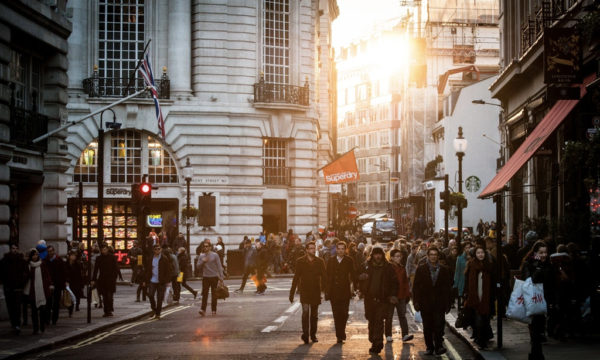From pain relief to parliament scrutiny: A history of poppers in the UK

Poppers weren’t always on dancefloors and darkrooms. While we now know them as a recreational drug often used by the queer scene, they have quite a rich history which goes all the way back to the 19th century. Buckle up, as we give you a quick road tour of how they went from a golden bullet in a doctor’s toolkit to an icon of the 1970s disco scene.
The 1800s
While poppers today come in numerous formulas, the original and most enjoyed formula is amyl nitrite. This particular molecule was discovered way back in 1844, by French chemist Antoine Jérôme Balard. Balard has quite the legacy of discovery, most notably being the first person to describe the element bromine. Unfortunately for amyl, discovering is all Antoine did with it, seemingly finding his other discoveries more interesting.
It would be another 23 years before amyl was actually used in any meaningful way, this time by a Scottish physician, Sir Thomas Lauder Bruton. In 1867, Bruton documented amyl’s potential to treat angina (chest pain). He reasoned the dilationary effects of amyl on the hearts’ arteries would improve blood flow to the heart’s muscle and stop the pain.
The name
The name also dates back to the 1800’s. Once their medical application had been documented and became widely used as a treatment for heart-related chest pains, amyl started being produced en masse.
Doctors would provide ‘pearls’ of amyl nitrite to treat the pain. These were a type of glass mesh that contained the substance. Patients would drape the pearls in a silk cloth and crush them, releasing the vapours inside which they would then inhale. This crushing produced a popping sound, which became so distinctive that these amyl pearls became known widely as poppers. Even though today the way it’s packaged has changed, the name persists.
The 1900s
Around the early 1960s amyl was replaced by nitro-glycerine as the go-to-treatment for angina. Manufacturers had to find a new market. One avenue was as an antidote to gun fumes for soldiers in the Vietnam War. However, as we all know now, they found a second life in the 1970s in the disco scene.
They became massive in the 1970s, Initially pioneered by gay men who used them as an aid for sex and sex toys, before quickly spreading into the mainstream. Surveys conducted at this time showed their usage had evolved beyond homosexual men and a number of demographics would regularly use poppers. Legacy brands, such as Rush poppers, were set up in this era and are still sold to this day. They became so big that clubs in New York were said to spray poppers into the air to enhance the vibe.
While also big in the bedroom, poppers would maintain their hold in clubs, finding their way into the rave scene of the 1990s. Poppers were not without the controversy however. With the onset of the aids pandemic, fingers were initially pointed at poppers due to their proximity to homosexual men. This was eventually debunked, but slowly due to the government’s general inaction with the issue.
Parliament scrutiny
Fast forward to the modern day, up until 2016 recreational popper use had fallen within a legal grey area in the UK. Technically not illegal, but also not necessarily given the OK by the government either.
This uneasy truce was upheaved with the government’s proposed Psychoactive Substances Act of 2016. This sought to ban any substance that affected a person’s mental or emotional state through depressing or stimulating the central nervous system. This put poppers right into the firing range.
Crispin Blunt, a Conservative MP, managed to put a stop to this when he stood up in parliament during a debate and admitted to using poppers, pleading his party to look into the matter further. Poppers as such were removed from the piece of legislation at the last minute, but this did not necessarily fully clarify poppers’ legal status.
It took another four years for the then Home Secretary, Priti Patel, to take the issue up once again. A court of appeal judgement in 2018 confirmed that while poppers only have an indirect psychoactive effect, they would still technically fall under the formerly mentioned act of 2016. Due to the uncertainty, Pitel took action and explicitly exempted poppers from the Psychoactive Substance Act. This leads us to the current day, where stores are able to confidently sell and ship poppers UK wide.
With almost 200 years of history, the tale of poppers is maybe a bit larger than you might initially expect. Nowadays we see other formulas, as well as amyl, that produce differing effects, namely propyl and pentyl. Yet the initial amyl formula endures. Thanks to Priti Patel, we’re now able to buy poppers to our hearts’ content.
The editorial unit























Facebook
Twitter
Instagram
YouTube
RSS